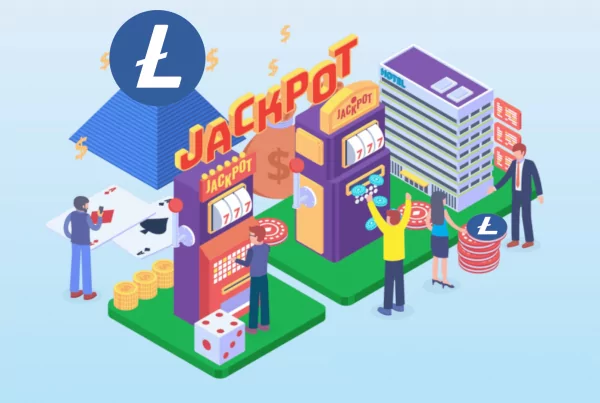
Cryptocurrencies like bitcoin are steadily growing in popularity and are moving even closer to the mainstream of financial business and investing. More outlets and institutions are accepting and trading in digital currencies. The steadily rising value of different forms of cryptocurrency is encouraging more people, experts and beginners alike, to see them as a sound investment. However, to enter the thriving world of crypto investing, it’s not just a matter of choosing which currency to go for: you also need to choose a cryptocurrency wallet.
What is a cryptocurrency wallet?
A cryptocurrency wallet keeps your currency secure and is also how you interact with the blockchain to make transactions. While crypto wallets come in several different forms, you will need one either online or connected to the internet to send and receive cryptocurrency.
This best crypto wallet review is very helpful for an overview of the different kinds of cryptocurrency wallets and their pros and cons; this best crypto wallet review is very helpful. However, an important point to remember at the outset is that your currency is not stored in the wallet. What is in the wallet are the identifying codes you use to access your currency: your private and public keys.
So where is my money?
The defining characteristic of cryptocurrency is that it doesn’t exist in any physical form, and therefore can’t be “stored” anywhere. All you have is a balance showing how much of this theoretical digital currency you own. This information is recorded on a decentralized public ledger, the blockchain, which runs on multiple computers in different locations with different owners. Because it is public information stored in numerous places, it can’t be changed, falsified, corrupted, or lost.
Why do I need a wallet?
In a way, the term ‘wallet’ can be misleading, as a cryptocurrency wallet is more like a bank account. Everyone knows that their bank doesn’t have their personal savings in a separate safe with their name on it. Rather, your account is a way for you to send and receive funds and check your notional balance and a way to make sure that you are the only person with access to your funds. A crypto wallet works in the same way.
When your wallet is online, you can monitor your balance in real-time, and you can make transactions using your private and public key. If you want to send someone money, you request their public key: a string of randomly-generated code that acts as the address you are sending the money to. This public key must then match with their private key for them to receive it. If all goes well, your balance will go down, and theirs will go up by the corresponding amount.
Why do I need two keys?
You need both your private and public keys to access your cryptocurrency funds, and you keep your keys in your wallet. Your public key is shared whenever you want to make a transaction, but your private key should never be shared with anyone. Giving someone your private key is basically like opening your virtual cryptocurrency safe and telling them to help themselves. And unlike with regular currency, there’s no safety net if your crypto funds are stolen or misappropriated. You are 100% responsible for taking care of your own money.
How do I know my wallet is secure?
There’s never any guarantee of security with anything, but there are steps you can take to make sure that your keys, and therefore your money, are as well protected as possible. An online digital wallet is necessary to complete transactions and check your balance, but anything online can potentially be hacked. Keeping your keys in an offline wallet, for instance, a USB device, on your desktop PC, or a removable hard drive, protects them from hackers, but there is always the risk of the device becoming damaged, corrupted or simply lost.
Whether online or offline, protect your wallet with randomized passwords, changed regularly. Use two-factor authentication and pin codes, and consider multi-signature authorization, where two parties are needed to access the wallet. Choosing the cryptocurrency wallet that’s right for you depends on how you’re going to use it: for instance, whether you will be making frequent transactions or preserving your capital over a long period. But whichever choice you go for, security is paramount.



